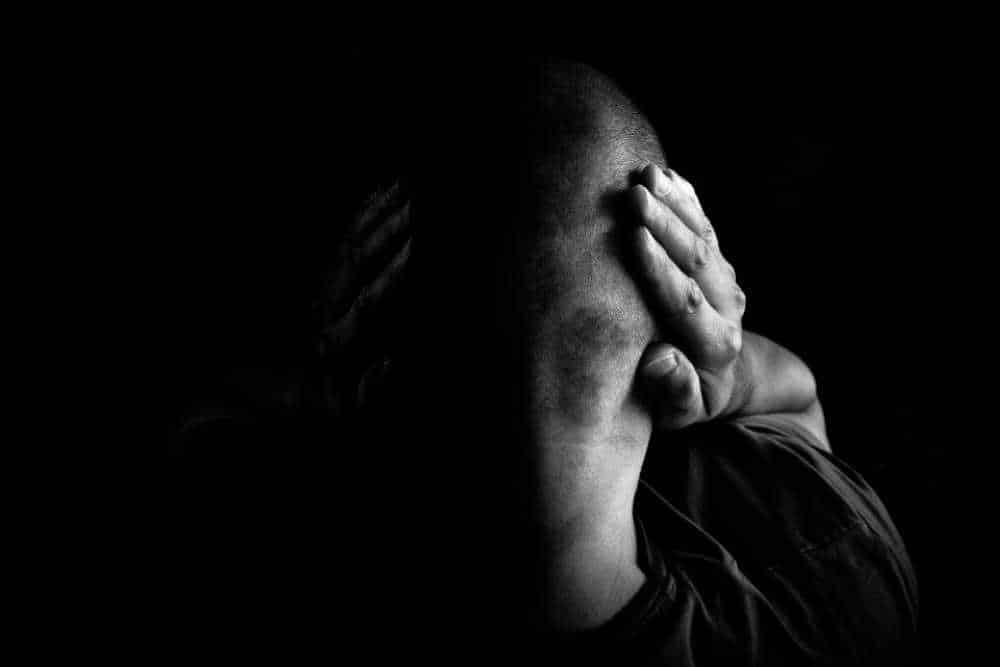Survivor’s guilt is a psychological phenomenon in which a person feels intense remorse for surviving a traumatic event when others did not. While not an official diagnosis, survivor’s guilt is often linked to post-traumatic stress disorder (PTSD), particularly in those who have experienced war, natural disasters, mass shootings, or other life-threatening situations. It can present with similar emotional and psychological symptoms as PTSD, such as intrusive thoughts, anxiety, and avoidance behaviors. Though they are not always the same, the guilt of a survivor and PTSD frequently overlap and may require similar treatment approaches.

What Is Survivor’s Guilt?
Survivor’s guilt is a complex emotional response that can follow a traumatic experience in which someone lives while others do not. It is often rooted in deep empathy and a heightened sense of responsibility, particularly in those who feel they could have done more to prevent harm. While anyone can experience this emotion, it is especially common among military personnel, first responders, survivors of mass violence or natural disasters, and people who have outlived loved ones after fatal accidents or illnesses.
The guilt often stems from irrational beliefs that a person should have been able to change the outcome or that they did not “deserve” to survive. This type of guilt can be both acute and long-lasting, particularly when left unprocessed. Individuals may find themselves stuck in cycles of self-blame or “what if” thinking, replaying events repeatedly in their minds, and second-guessing their choices.
Additionally, it can extend beyond the immediate aftermath of the event. Months or even years later, individuals might experience symptoms triggered by anniversaries, media coverage, or reminders of the people they lost. This extended emotional pain can interfere with work, relationships, and personal fulfillment. Although once thought of as a stand-alone condition, it is now more often viewed as a subset of trauma-related symptoms, particularly those found in PTSD.
Is Survivor’s Guilt Considered a Symptom of PTSD?
Survivor’s guilt is widely recognized as a symptom or feature of post-traumatic stress disorder (PTSD), although it is not classified as a distinct mental health diagnosis. According to the Diagnostic and Statistical Manual of Mental Disorders, Fifth Edition (DSM-5), PTSD includes clusters of symptoms that can emerge after exposure to actual or threatened death, serious injury, or sexual violence. Within the symptom category of “negative alterations in cognitions and mood,” the mental health issue is identified through persistent negative emotional states, especially those involving guilt, shame, or self-blame.
Many individuals who experience PTSD report feelings of guilt as survivors, particularly those who lived through war zones, mass shootings, car crashes, natural disasters, or deadly illnesses. These survivors may feel an overwhelming sense of responsibility for the outcomes of the event, even if they logically know the situation was beyond their control. They often ask themselves questions like, “Why did I live and they didn’t?” or “What more could I have done?” These thoughts can dominate their mental and emotional lives, disrupting sleep, work, relationships, and even their ability to feel joy.
Every person with PTSD may not experience the guilt of a survivor, but it is especially common in those who have witnessed the loss of close friends, family members, or colleagues. Veterans and first responders are particularly vulnerable, as their roles often involve life-or-death situations and a sense of responsibility for the well-being of others. In fact, research from the U.S. Department of Veterans Affairs highlights the strong connection between guilt and the development or worsening of PTSD symptoms.
The presence of the mental health issue can also amplify other PTSD symptoms, such as:
- Hypervigilance or exaggerated startle response
- Emotional numbness or detachment from others
- Avoidance of trauma-related memories, people, or places
- Recurring nightmares or flashbacks of the traumatic event
Left untreated, survivor’s guilt can prolong the duration of PTSD and make recovery more difficult. Fortunately, professional support is available. Integrating mental health services in California that use evidence-based therapies and trauma-informed care can significantly improve long-term outcomes for those living with PTSD and the guilt of a survivor.
Understanding the relationship between PTSD and survivor’s guilt is critical for both clinicians and individuals affected by trauma. It allows for more targeted treatment plans and promotes healing through a better understanding of the emotional complexity that often follows traumatic events. If someone experiences persistent guilt after surviving a life-threatening event, especially when it interferes with daily functioning, it’s important to view this as more than just a passing feeling—it may be a serious symptom of PTSD that warrants professional help.
Mental Health Treatment That Works
Call 949-625-0564What our customers are saying
What Are the Common Signs of Survivor’s Guilt?
Recognizing the signs of survivor’s guilt is a critical step toward understanding its impact and seeking the right kind of support. These signs can appear shortly after the traumatic event or may develop gradually over time. They often impact how a person feels, thinks, and behaves, making it difficult for them to function in daily life. It can vary in severity but usually involves a combination of emotional, mental, and physical symptoms.
Emotional signs may include:
- Persistent sadness or depression: Individuals may struggle with feelings of despair or hopelessness related to the loss of others.
- Overwhelming guilt: This can manifest as a constant sense of remorse or regret for having survived.
- Shame or worthlessness: Survivors may feel undeserving of life, love, or happiness.
Mental and cognitive signs often involve:
- Intrusive thoughts: These can include flashbacks or persistent memories of the event that persist.
- Obsessive rumination: Survivors may repeatedly replay the trauma, questioning what they could have done differently.
- Difficulty concentrating: The emotional burden can impair focus, decision-making, and memory.
Behavioral and physical signs can include:
- Withdrawal from others: Survivors may isolate themselves to avoid reminders of the trauma or because they feel disconnected.
- Loss of interest in life: Activities that once brought joy may now feel meaningless or even painful.
- Fatigue, insomnia, or chronic pain: Emotional stress can translate into physical ailments, creating a cycle that worsens mental health.
In some cases, the mental health issue may lead to risky behaviors, substance abuse, or suicidal ideation. These warning signs should not be ignored, especially if they persist for longer than a few weeks or significantly interfere with daily life. Seeking therapy through PTSD treatment programs can make a significant difference in emotional healing and recovery.
What Therapies Are Effective for Treating Survivor’s Guilt?
Many evidence-based therapies can help individuals cope with and recover from the guilt of a survivor. Treatment often involves identifying the underlying trauma, challenging negative beliefs, and developing healthier emotional responses. Effective therapies for mental health issues include:
- Cognitive Behavioral Therapy (CBT):
- Helps reframe irrational thoughts and beliefs
- Teaches skills for managing emotional distress
- Encourages healthier thinking patterns around the trauma
- Prolonged Exposure Therapy:
- Involves safely confronting traumatic memories
- Reduces the intensity of emotional reactions over time
- Aims to decrease avoidance behaviors
- Eye Movement Desensitization and Reprocessing (EMDR):
- Combines visual stimulation with trauma recall
- Helps process and reframe distressing memories
- Especially effective in reducing PTSD-related symptoms
- Group therapy and peer support:
- Offers connection with others who’ve experienced similar trauma
- Provides a safe space for expression and mutual understanding
- Encourages a sense of belonging and reduces isolation
- Trauma-informed care:
- Recognizes the widespread impact of trauma
- Emphasizes physical, emotional, and psychological safety
- Promotes empowerment, trust, and collaborative healing
It’s important to seek professional support rather than attempting to navigate the mental health issue alone. Treatment tailored to the individual’s trauma history can improve long-term outcomes and restore quality of life.

Key Takeaways on Survivor’s Guilt
- Survivor’s guilt is a psychological response that often occurs after living through a traumatic or deadly event when others did not.
- Though not a formal diagnosis, it is frequently considered a symptom of PTSD, particularly under negative changes in mood and cognition.
- Common signs include emotional distress, self-blame, intrusive thoughts, and withdrawal from others.
- Effective treatments such as CBT, EMDR, prolonged exposure therapy, and trauma-informed care can significantly improve symptoms.
- Accessing professional, compassionate care early can reduce the risk of long-term psychological distress.
If you’re experiencing the emotional weight of the mental health issue, you’re not alone—and healing is possible. At Moment of Clarity, we specialize in trauma-informed, personalized care to help you navigate the complexities of PTSD and emotional recovery. Our experienced team offers a range of evidence-based therapies tailored to your unique journey. Call us today at 949-625-0564 to speak with a caring specialist and take the first step toward healing.
External Resources
- American Psychological Association – PTSD
- National Institute of Mental Health – Post-Traumatic Stress Disorder
- U.S. Department of Veterans Affairs – PTSD and Guilt




